Have you ever felt intimidated by ChatGPT, the chatbot that can write like a human? You know, the one that can create amazing (or terrifying) content based on the input it receives. You may have wondered: How does ChatGPT affect my SEO performance?

We get it. You’re a web developer, owner, or blogger who cares about SEO. You want your website to rank well on Google, attract more visitors, and convert them into loyal customers. You also want to create high-quality, relevant, and engaging content that showcases your expertise and value. But how do you balance these goals with the use of ChatGPT?
Don’t worry, we’re here to help. In this blog post, we’ll explain the effects of ChatGPT on SEO performance, and give you some tips and best practices on how to use ChatGPT for SEO.
Are you ready to learn more about ChatGPT and SEO? Let’s begin.
Create Amazing Websites
With the best free page builder Elementor
Start NowWhat Is ChatGPT? What Are Its SEO Potentials?
OpenAI created the conversational AI model ChatGPT to produce natural language responses that seem human. It is built on the GPT-3.5 architecture and can comprehend and produce text that resembles that of a human depending on the input it gets.
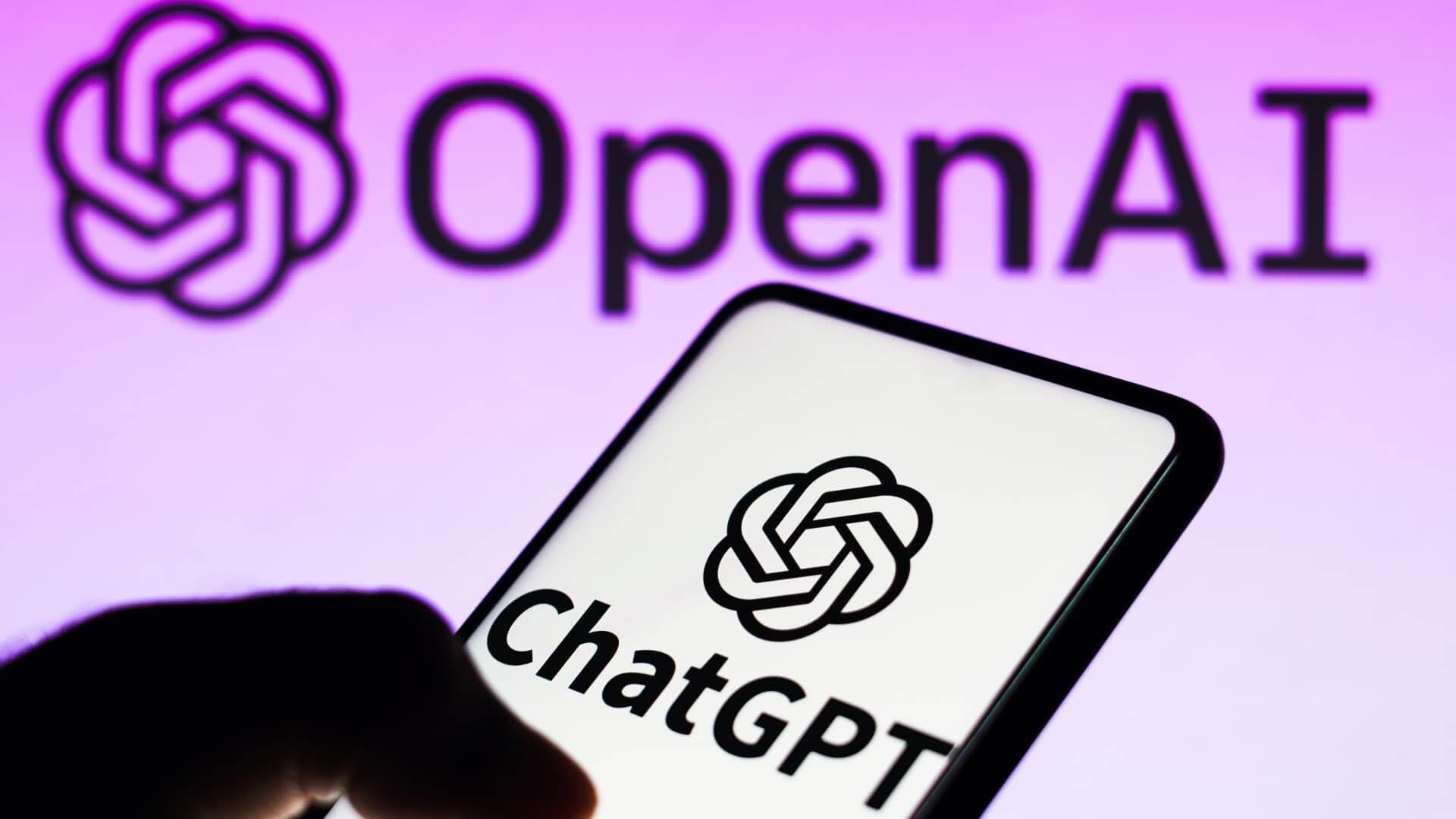
ChatGPT has SEO potential since it can be used to provide interesting and pertinent material for blogs, websites, and social media. By using its natural language understanding and response capabilities, it can produce high-quality, educational, and keyword-rich material, which aids in content optimization for search engines.
It may also be used to build virtual assistants and chatbots, which enhance user retention and engagement on websites and ultimately boost search engine optimization.
Although ChatGPT is an effective tool, using it as an SEO solution is not advised.
Reasons to Steer Clear of ChatGPT for SEO
There are a few reasons why ChatGPT might not be the ideal tool for the job when it comes to creating SEO content. We'll discuss ChatGPT's shortcomings and the reasons it might not be the best tool for producing SEO-friendly content.
1. Absence of Particular Domain Expertise
The knowledge of ChatGPT is predicated on trends and data acquired through September 2021. A current understanding of term trends, search engine algorithms, and industry-specific data are necessary for SEO.
ChatGPT might generate material that is out-of-date and inconsistent with modern SEO techniques if it does not have access to real-time data and the capacity to refresh its knowledge.
2. Inaccuracy and Incompleteness
Oftentimes, ChatGPT's insights are erroneous or lacking, which results in inadequate keyword selection and inefficient content strategies.
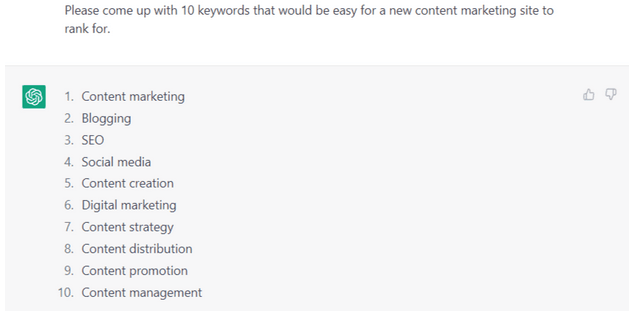
Furthermore, the tool's recommendation engine does not consider the context of your website or your target audience, which means you may wind up producing content that is uninteresting to visitors.
3. Lack of Contextualization
Contextualizing your content is essential for SEO performance, but ChatGPT does not take this into account when recommending keywords and subjects for blog posts or other web pages.
If you don't consider these aspects, you run the danger of creating mediocre content that won't improve your website's search engine ranking or successfully engage users.
4. Non-compliance with E.A.T. Standards
Google's E.A.T. (Expertise, Authoritativeness, Trustworthiness) criteria are often not followed by ChatGPT. The resulting material may lack authoritative opinions and professional insights, which could undermine readers' trust.
As a result, it cannot meet the strict criteria of SEO tactics, which depend on legitimacy and professional validations.
5. Duplicate Content
ChatGPT can produce text that closely resembles other online texts. This is because there is a lot of duplicate content already on search engines in the dataset ChatGPT was trained on. If your website has redundant material, search engines will not rank it as highly, which can harm your SEO.
While ChatGPT can be a useful tool for brainstorming and helping with content development, it's crucial to be aware of how it affects search engine optimization.
Tips And Best Practices on How to Use ChatGPT for SEO
- Consider ChatGPT an aid rather than a substitute: Though it can't take the place of your investigation, analysis, and creativity, ChatGPT can assist you with idea generation, brainstorming, and outlining. To ensure that ChatGPT's material satisfies your standards and objectives, you should constantly examine and change it.
- Don't use ChatGPT in place of other resources: While ChatGPT can assist you in finding relevant keywords, producing meta descriptions and title tags, generating schema markup, and other SEO duties, it cannot replace your own keyword research, testing, and optimization. To validate and enhance your SEO performance, you should constantly employ trustworthy SEO tools and data sources.
- Use ChatGPT as a reference, not as a master: While ChatGPT might be useful for comprehending search intent, determining content subjects, constructing FAQ pages, and other SEO tactics, it shouldn't be your only source of information and guidance on SEO. The best methods and recommendations from reliable SEO specialists and resources should always be followed.
Improved Methods for Using AI in Blogging
Free AI-generated blog post tools offer maximum benefits to bloggers because writing a blog is the most time-consuming process. You will need a minimum of 3 to 8 hours to complete a blog. Sometimes, it takes more depending on the quality, word count, and technical issues.
Below are some improved ways to use AI in blogging:
Quick SEO-optimized content generation:
The primary benefit of blog entries created by AI is that they will be search engine optimized. Because of this, you may avoid the trouble of separately optimizing it following content creation. You can rely on this AI content writer without any issues. Tasks related to optimizing blog posts can occasionally take a long time.
For instance, conduct keyword research by looking at search volume, then use some secondary keywords in your blog article and optimize it for that term.
With AI blog writing tools, this lengthy procedure can be completed in a matter of minutes. No matter how skilled you are, it is impossible to complete in a few minutes. Additionally, there's a potential that the content will contain inconsistent term usage if you're doing it alone.
Less time investment in blogging:
There is no doubt that blogging requires a significant investment of time. It can consume all of your time to write posts for a single website. However, a large number of bloggers manage several blogs. What are your thoughts on the way they oversee blogs across several websites? Hiring paid bloggers is the only option available, which may raise their expenses.
However, you may reduce this additional expense and enhance blogs by adopting AI blog post generators. No matter how many websites you manage, you won't need to hire a paid writer once you use AI technologies for blog authoring. With these artificial intelligence blogging solutions, you can simply publish content for your multiple sites in less time, effort, and money, since artificial intelligence can develop a blog in a matter of minutes.
Higher online presence:
You will require a strong online presence to connect with your audience and target customers first. With millions of different blogging sites, your audience or customers will locate your website more readily thanks to this digital presence. And nothing is more effective than posting blogs with SEO optimization to create a strong online presence.
You can obtain a decent position on SERP by using AI technologies to develop blogs optimized for search engine optimization. I assume you understand exactly what this means.
This means that by using these blogging AI technologies, you can make your blogs better and drive a sizable amount of traffic to the landing page of your website. This will have a positive impact on the general functionality of the website.
New content creation ideas:
One of an AI tool's strengths is its ability to generate a wide range of content ideas or artificial intelligence blog topics. because a variety of content production ideas will be suggested by each search, this means that with these artificial intelligence blog themes, you can create your entire year's content calendar in minutes.
However, you will discover that this entire process takes time if you attempt it on your own.
Additionally, there will be certain restrictions. By using an AI blog post generator, you can overcome these constraints and finish content development jobs faster.
Grammatical error-free content:
Have you ever written a blog and discovered numerous grammatical problems while proofreading?
The causes could include writing quickly or without focus when writing, among other things. Furthermore, it is entirely typical. For this reason, every blogger uses Grammarly or any other tool to proofread their final posts.
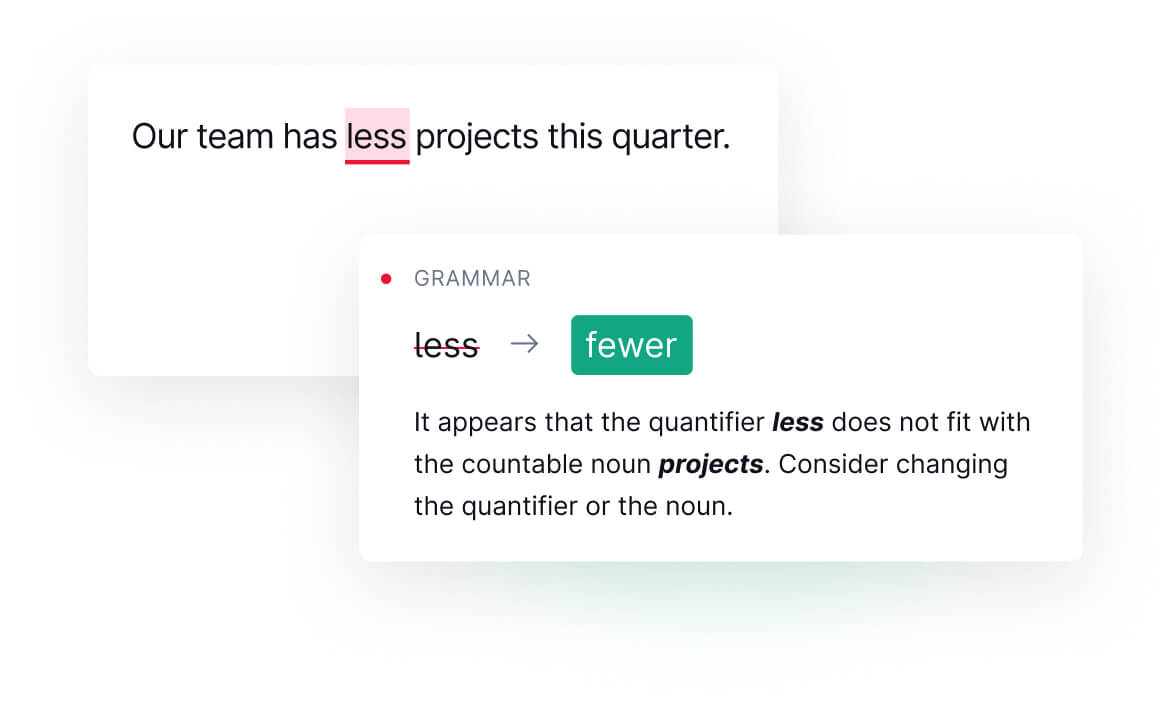
This takes a long time, however, in that time you can use an AI tool to build full content. Additionally, there won't be any grammar errors in your writing, which will save you time when updating.
This implies that a blog writing tool powered by artificial intelligence also offers a much easier blogging experience. Not only will blogging become a lot easier and faster, but so will creating your newsletters, social media posts, video scripts, and other content.
Better Tools For SEO Keyword Research Than Chat GPT
There are other better alternatives that you could use to do SEO keyword research rather than using ChatGPT. Below are some of the following we will look at:
1. Semrush
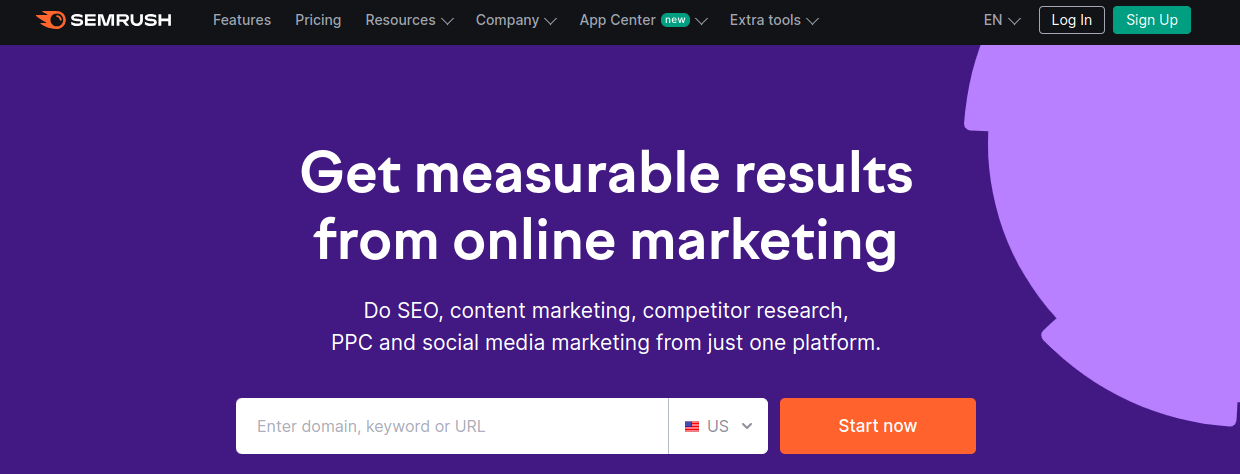
Competitor analysis is one of the many functions available in SEMrush, an all-in-one SEO solution. You may learn more about the keywords your rivals are using and find any weaknesses in your strategy by looking at their websites.
You may find out which keywords bring in the most organic traffic to your competitors' websites by using SEMrush's "Organic Research" tool. You can use this information to choose which keywords to focus on to effectively compete in the search results.
Key Features
- Keyword Research
- Rank Tracking
- Link Building
- On-page SEO
- Local SEO
- Competitor SEO Analysis
2. Google Keyword Planner

One of the free tools in the Google Ads suite is Google Keyword Planner, formerly known as Google Keyword Tool. Finding the ideal keywords for your Google AdWords ads is its primary goal.
Even though it is a PPC tool, it is frequently used for SEO, mostly because it is free and offers high-quality keyword ideas straight from Google.
Key Features
- View estimated search traffic
- View Keyword impression
- View keyword conversion
- View the potential number of clicks
- Create custom keyword strategy for Google ads
3. Surfer AI
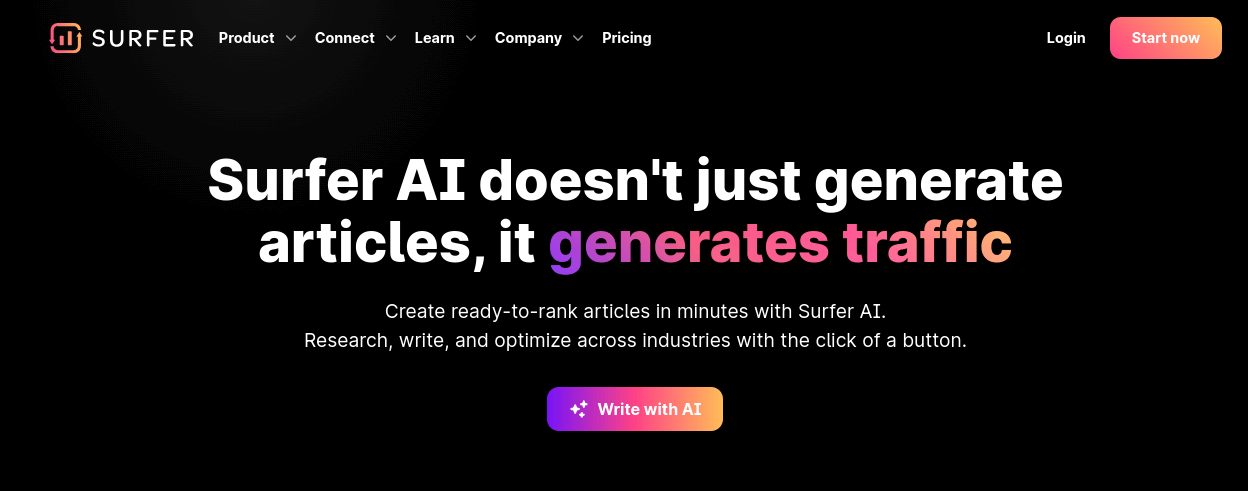
With Surfer AI, you can use artificial intelligence to quickly research, create, and optimize content for a variety of industries.
In less than 20 minutes, you may choose your keyword, change the article specifications, and submit an article that is ready to go live thanks to a reinforced GPT-4 engine and 500 ranking factors.
Moreover, Surfer AI offers content verification, plagiarism detection, and integrations with Google Docs, WordPress, and Jasper as part of Surfer's content intelligence solution.
Key Features
- Content Score
- Platform Compatibility
- Content Verification
- Content Editor
- Plagiarism Check
Note: There are many other Keyword research SEO tools that we haven't covered in this particular piece, but you can check them out, some of which include:
Jasper, Answer The Public, Copy.ai, and Ahrefs
Conclusion
You’ve made it to the end of this blog post, and you’ve learned a lot about ChatGPT and its effects on SEO performance. You may be feeling a mix of emotions right now: curiosity, excitement, skepticism, or even fear. You may be thinking: Is ChatGPT worth it? Will it help me or hurt me? How can I use it ethically and responsibly?
We understand how you feel. ChatGPT is a powerful and innovative tool, but it also comes with some challenges and risks. That’s why we’ve shared with you some of the best practices and tips on how to use ChatGPT for SEO, such as:
- Consider ChatGPT an aid rather than a substitute
- Don't use ChatGPT in place of other resources
- Use ChatGPT as a reference, not as a master
By following these guidelines, you can leverage ChatGPT to create better content, optimize your SEO performance, and achieve your online goals. You can also avoid the pitfalls of ChatGPT, such as low-quality or duplicate content, plagiarism, and ethical issues.
Although ChatGPT's AI capacity is amazing, it can't offer trustworthy SEO insights.





